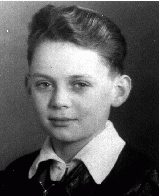You searched for: 谷歌seo霸屏投放靠谱【TG飞机:@bapingseo】摩纳哥谷歌留痕推广【TG电报:@bapingseo】資金程序源碼網站【Telegram:@bapingseo】csgo比赛押注巴黎人注册送39元欢迎您?202207086IveCU.html
<< Previous | Displaying results 251-275 of 644 for "谷歌seo霸屏投放靠谱【TG飞机:@bapingseo】摩纳哥谷歌留痕推广【TG电报:@bapingseo】資金程序源碼網站【Telegram:@bapingseo】csgo比赛押注巴黎人注册送39元欢迎您?202207086IveCU.html" | Next >>
-
Max Gutmann
ID CardMax was raised in the Romanian town of Radauti, a trading and woodworking center near the Ukrainian border. The Gutmanns had a traditional Jewish home, and Max's father was on the board of directors of the local Jewish community. Max's father dealt in grain, feed, and livestock and he was a purveyor of horses for the Romanian military. 1933-39: Max's pony, Lisa, was kept in his family's stables with the other horses. The secondary school he attended was semi-private; it was governed by the state, but each…
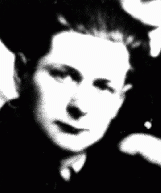
-
Erika Neuman
ID CardErika was born in Znojmo, a town in the Czech region of Moravia with a Jewish community dating back to the 13th century. Her father was a respected attorney and an ardent Zionist who hoped to immigrate with his family to Palestine. In 1931 the Neumans moved to Stanesti, a town in the Romanian province of Bukovina, where Erika's paternal grandparents lived. 1933–39: In Stanesti, Erika attended the public school as well as the Hebrew school, which her father had helped to found. She loved to play with her…
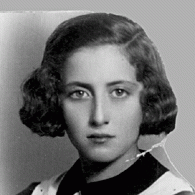
-
Janusz Piotrowski
ID CardJanusz was the eldest of four children born to Catholic parents in Plock, a town located in a rural area north of Warsaw. His father was an accountant. Janusz attended local schools, and became active in scouting. 1933-39: Janusz went to Warsaw to study civil engineering. On September 1, 1939, the Germans began bombing Warsaw. One week later, all able-bodied men who had not been mobilized were directed to retreat east. On September 17, Janusz was 90 miles from the Romanian border. That night, the Soviets…
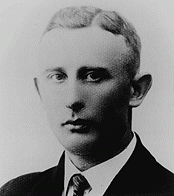
-
Wladyslaw Tadeusz Surmacki
ID CardBorn to Catholic parents, Wladyslaw attended schools in Warsaw and earned a degree in survey engineering in Moscow in 1914. After fighting in World War I, he commanded a horse artillery division in Warsaw, worked for Poland's Military Geographic Institute, and taught topography courses. He started a family in 1925, and after he retired from the army in 1929 he founded a surveying company. 1933-39: When war with Germany became imminent in the summer of 1939, Wladyslaw volunteered to fight but was rejected…
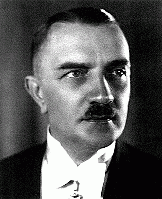
-
Gertruda Nowak
ID CardGertruda was one of five children born to a poor family in the rural community of Zegrowek in western Poland. The Nowaks lived near Gertruda's grandparents. Like their parents, Sylwester and Joanna Nowak, the Nowak children were baptized in the Roman Catholic faith. 1933-39: As a young girl, Gertruda helped with chores around the house, and after school she looked after her younger brothers and sisters. She was 9 years old when the Germans invaded Poland on September 1, 1939. Nazi troops reached Zegrowek…
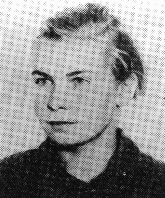
-
Michal Scislowski
ID CardMichal was one of two children born to Catholic parents living in Siedlce, a large town some 65 miles east of Warsaw. Michal's father was an intelligence officer in the Polish army. Because his duty station frequently changed, the family lived in several towns along the Polish-Soviet border. As a child, Michal enjoyed photography and was active in the boy scouts. 1933-39: Michal's family was living in Wilejka, a town near Vilna, when the Germans attacked Poland on September 1, 1939. The Soviet army…
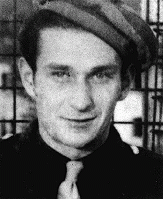
-
Pawel Zenon Wos
ID CardPawel was the oldest of four children born to Roman Catholic parents in Poland's capital of Warsaw. Pawel's father had worked for the Polish merchant marine before starting his own textile business in 1930. The family moved to a comfortable apartment near the Royal Castle and the Vistula River. Pawel excelled in sports, including basketball and tennis. His favorite sport was rowing. 1933-39: In May 1939 Pawel became an army reserve officer and went to training camp near Augustow. On the morning of…
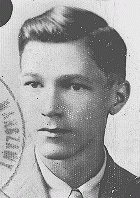
-
Julian Noga
ID CardAlthough Julian's Polish Catholic parents had immigrated to the United States before World War I, his mother had returned to Poland and Julian was born in a village not far from the large town of Tarnow in southern Poland. Julian was raised in Skrzynka by his mother on her four-acre farm while his father remained in the United States. 1933-39: At 16 Julian left home and worked as a dishwasher in an elegant Jewish club in downtown Tarnow. When the Germans invaded in September 1939, he returned to his…
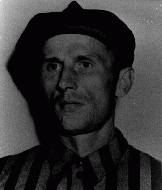
-
Hanandel Drobiarz
ID CardHanandel was raised with his three brothers and sisters in the town of Kozlow, where his family sold grain and livestock. The family was religious, and they observed the Sabbath and all Jewish holidays and dietary laws. When Hanandel was 5, he began studying Hebrew, the Bible, prayers, and Jewish history. 1933-39: At age 14 Hanandel was apprenticed to his uncle in Sosnowiec as a tinsmith. He worked for his uncle during the day and attended trade school at night. When he graduated from trade school he…
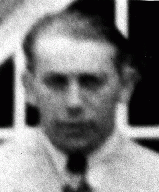
-
Johannes M. Lublink
ID CardJohannes was born to Christian parents and had three brothers and three sisters. His father sold coal for heating systems. By 1933, Johannes was also a coal distributor. Like many other Dutch citizens, Johannes did not approve of Hitler's policies. He especially objected to Hitler's persecution of Jews and Jehovah's Witnesses. 1933-39: Hitler's coming to power in Germany was a threat to all of them. In 1936, Johannes became a Jehovah's Witness. His mother was also a Witness and, by 1938, one brother and…
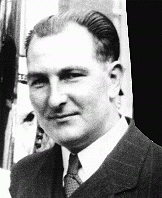
-
Walther Hamann
ID CardWalther was born in the state of Thuringia in east central Germany. Though his parents were Lutheran, Walther became a Jehovah's Witness in 1923. After becoming a master baker and confectioner in 1924, Walther worked in various coffeehouses in Plauen, Magdeburg and Duesseldorf. In 1928 he graduated from a professional school. He married and had two sons. 1933-39: In 1933 Walther became a pastry-making manager at the Cafe Weitz on Duesseldorf's Koenigsallee. The Gestapo arrested him at the cafe in 1937…
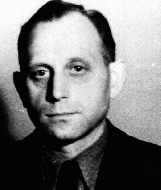
-
Sabina Szwarc
ID CardSabina grew up in a Jewish family in Piotrkow Trybunalski, a small industrial city southeast of Warsaw. Her family lived in a non-Jewish neighborhood. Her father was a businessman and her mother was a teacher. Both Yiddish and Polish were spoken in their home. In 1929 Sabina began public school, and later went on to study at a Jewish secondary school. 1933-39: On September 1, 1939, Germany invaded Poland. Four days later, German troops streamed into Sabina's city. After one month of occupation, her father…
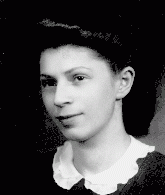
-
Gitla Zoberman
ID CardGitla was the second-youngest of four girls born to observant Jewish parents. They made their home in Sandomierz, a predominantly Catholic town on the Vistula River. Her father owned a small bookstore across from the town hall, selling school texts and novels. Gitla attended public school before enrolling in a Catholic girls' high school. In the winter, Gitla enjoyed skating on the Vistula. 1933-39: In 1937 Gitla moved to Katowice, a large town on the Polish-German border. There, she enrolled in a…
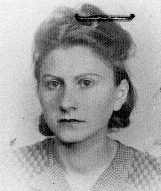
-
Lore Heumann
ID CardThe younger of two girls, Lore was born to Jewish parents in a village close to the Belgian border. The Heumanns lived above their general store. Across the street lived Lore's grandfather, who kept horses and cows in his large barn. When Lore was a year old, her family moved to the city of Lippstadt. The Lippe River flowed beyond the large garden in back of their house. 1933-39: When Lore was 6, her family moved to the nearby city of Bielefeld, where she entered public school. A year later, she and her…
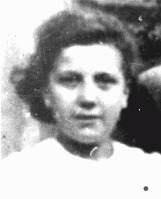
-
Shulamit Perlmutter (Charlene Schiff)
ID CardShulamit, known as Musia, was the youngest of two daughters born to a Jewish family in the town of Horochow, 50 miles northeast of Lvov. Her father was a philosophy professor who taught at the university in Lvov, and both of her parents were civic leaders in Horochow. Shulamit began her education with private tutors at the age of 4. 1933-39: In September 1939 Germany invaded Poland, and three weeks later the Soviet Union occupied eastern Poland, where Shulamit's town was located. Hordes of refugees…
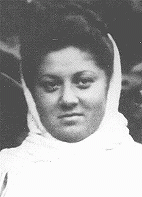
-
Channa Morgensztern
ID CardChanna and her husband and five children lived 35 miles east of Warsaw in the small predominantly Jewish town of Kaluszyn. Channa's husband, Jankel, was employed as a clerk in the town hall. After Channa's children reached school age, she helped her mother run a newspaper kiosk in town. 1933-39: Germany has invaded Poland, and Channa's hopes that Kaluszyn wouldn't be in the line of fire have been shattered. First, a German plane flew over their town and dropped a bomb on people waiting in line outside a…
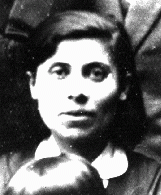
-
Marcus Fass
ID CardMarcus, known to his family as Moniek, was one of three children born to a Jewish family in the Polish town of Ulanow. His father worked as a tailor. Ulanow's Jewish community had many of its own organizations and maintained a large library. From the age of 3, Moniek attended a religious school. He started public school when he was 7. 1933-39: In 1935 Moniek's father left for America to find a job so that his family could later join him. He sent money to them while they waited for their emigration papers.…
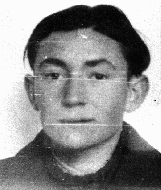
-
Vladan Popovic
ID CardVladan was the oldest of five children born to well-to-do Serbian Orthodox parents in the village of Gnjilane in the Serbian part of Yugoslavia. Vladan went to Montpelier, France, where he earned a law degree from the university. When Vladan returned to Yugoslavia, he worked as an attorney in Belgrade. He married and had one daughter. 1933-39: Vladan's wife died in 1933, and his 4-year-old daughter went to live with her maternal great-aunt. Meanwhile, Vladan had expanded his law practice and was…
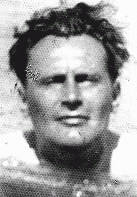
-
Lonia Goldman Fishman
ID CardLonia had three sisters and one brother. Her parents owned a cotton factory in the town of Wegrow. The Goldmans were a religious family, strictly observing the Sabbath, the Jewish holidays and the dietary laws. 1933-39: After studying all day at public school, Lonia attended a religious school for girls called Beis Yakov where she studied Hebrew, the Bible and Jewish history. Later, when she was in high school, a private tutor came to the house to teach her Hebrew. Lonia's favorite hobby was knitting.…
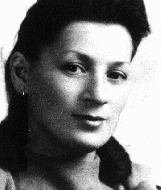
-
Erzsebeth Buchsbaum
ID CardErzsebeth was raised in Budapest, where her Polish-born Jewish parents had lived since before World War I. Her father, a brush salesman, fought for the Austro-Hungarian forces in that war. The Buchsbaums' apartment was in the same building as a movie house. There was a small alcove in the apartment, and Erzsebeth's brother, Herman, made a hole in the wall so that they could watch the films. 1933-39: Every summer Erzsebeth, Herman, and their mother took a special trip to Stebnik, Poland, to visit Grandma.…
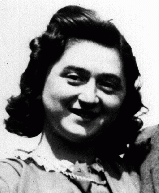
-
Chaja Kozlowski
ID CardChaja was the eldest of four children born to a middle-class Jewish family in the northeastern Polish town of Iwie. Her father earned his living as a blacksmith. Chaja first went to a private Jewish school that taught both religious and secular subjects; in the fourth grade she transferred to a public school, and also attended Hebrew school in the afternoon. 1933-39: Chaja belonged to one of the Zionist youth organizations in Iwie. They heard lectures, often on Palestine [Yishuv], and had many sporting…
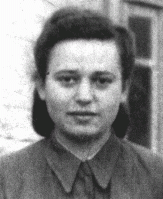
-
Henryk Lubelski
ID CardHenryk was raised in a religious Jewish family. His father was a cantor, and his parents placed an emphasis on education. In 1916 the Lubelskis moved to Rawicz, a town in German-occupied Poland. Henryk was first in his class in secondary school, where he also excelled in wrestling and soccer. After graduating, Henryk became an apprentice in a business. 1933-39: In 1935 Henryk's father secured a good position in the city of Katowice. There, Henryk worked in the sausage business. Since Katowice was close to…
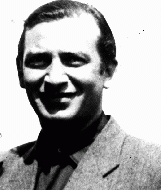
-
Gerda Weissmann
ID CardGerda was born to a Jewish middle-class family in Bielsko, Poland, a town noted for its textile industry. She began her education in Polish public school, but later entered a Catholic girls school. A rabbi was permitted to come into the school and instruct the Jewish students in religious studies. 1933-39: On Friday, September 1, 1939, German fighter planes appeared overhead, causing many people to flee the city. Gerda's family remained and lived through the intense shelling that followed on Sunday…
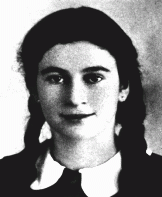
-
Selma Wijnberg
ID CardSelma was the youngest of the Wijnberg's four children, and the only daughter. When she was 7, her family left Groningen to start a business in the town of Zwolle [in the Netherlands]. There her parents ran a small hotel popular with Jewish businessmen traveling in the area. Every Friday there was a cattle market, and many of the cattle dealers came to the Wijnberg's hotel for coffee and business. 1933-39: At home Selma and her family were observant of Jewish tradition because her mother was religious.…
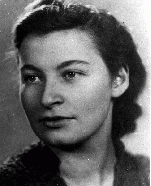
-
Thomas Buergenthal
ID CardThomas Buergenthal was born in May 1934 in the town of Ľubochňa, Czechoslovakia. His parents, Mundek and Gerda, were Jews who had fled the Nazi rise to power in Germany. In Ľubochňa, Mundek ran a hotel that welcomed other refugees and exiles fleeing Nazi persecution. 1933-39: In 1938-1939, Nazi Germany dismantled the country of Czechoslovakia and created the satellite state of Slovakia. As a result, Thomas and his family fled from Slovakia to neighboring Poland. They hoped eventually to immigrate to…
